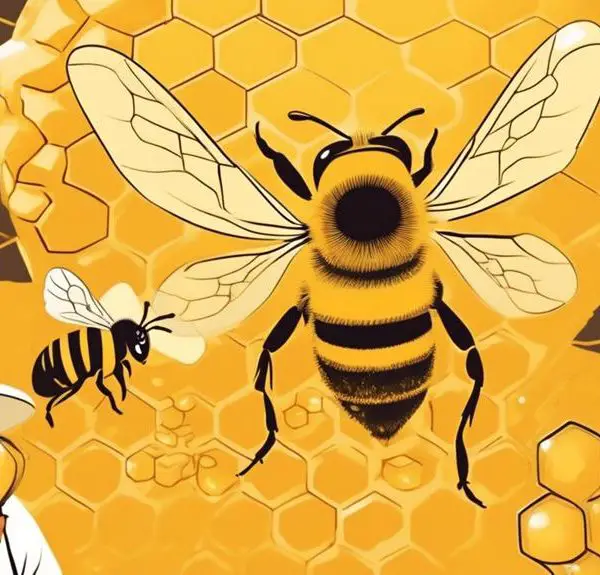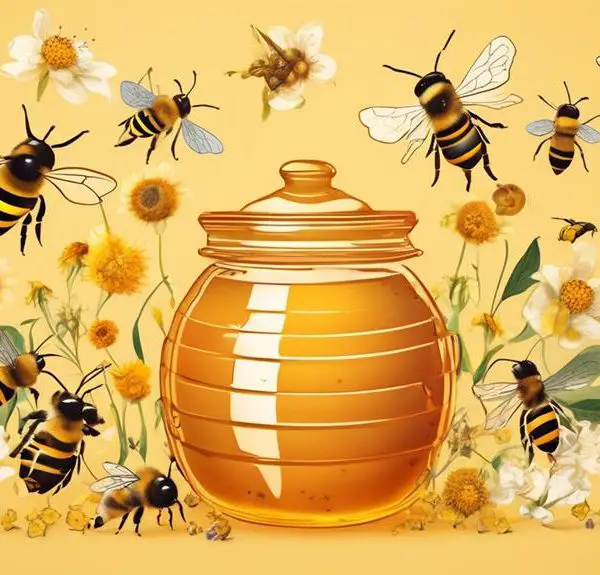Step into the world of beekeeping to uncover if the sweet taste of honey comes at the cost of our buzzing friends' lives.
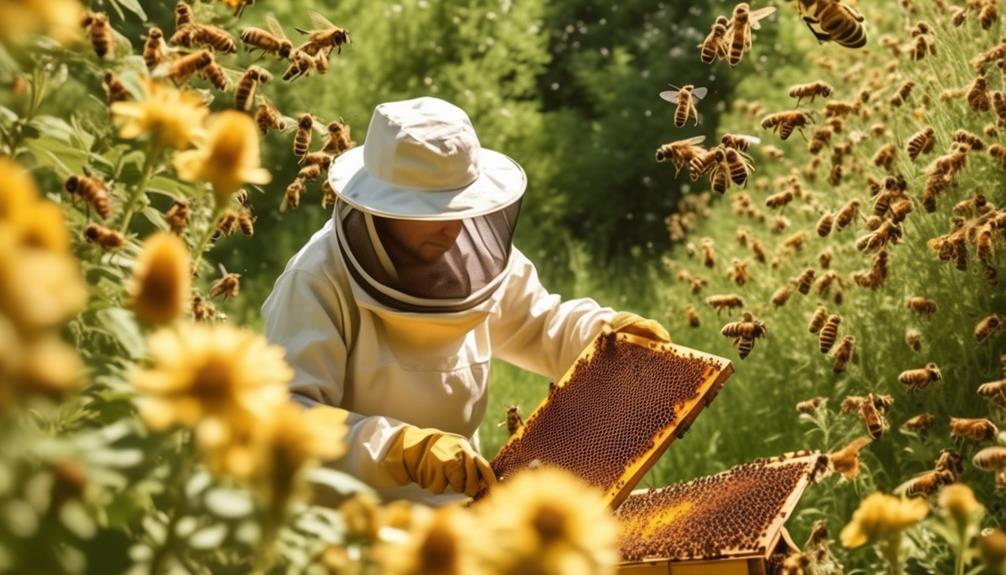
Are Bees Killed to Make Honey
You dip your spoon into the jar, you spread the golden delight on your toast, and you savor the sweet taste of honey without a second thought.
But have you ever stopped to wonder about the journey of that honey, from a bustling hive to your breakfast table?
Specifically, do bees pay the ultimate price in the production of this natural treat? As you navigate the world of beekeeping, you'll uncover practices both ethical and questionable, and learn if our buzzing friends are truly harmed in your pursuit of the perfect sweetener.
What you discover could subtly shift your morning routine.
Key Takeaways
- Queen bees lay eggs that hatch into larvae, initiating the bee lifecycle.
- Beekeeping practices should prioritize ethical treatment to support bee health and wellbeing.
- Overproduction of honey can stress bees and potentially lead to colony collapse.
- Sustainable alternatives to traditional honey, such as agave nectar or bee-free honeys, offer unique tastes while promoting bee welfare.
Understanding Bee Lifecycles
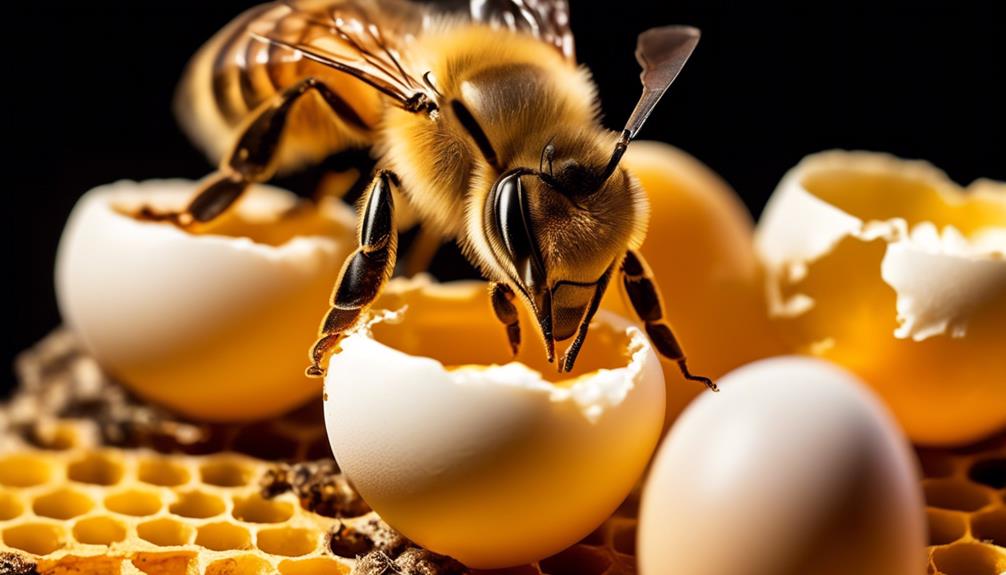
Embarking on a journey into the world of bees, it's essential for you to understand their lifecycle, as it plays a crucial role in honey production. Bees, like any other insect, go through four stages in their life – egg, larva, pupa, and adult. The queen bee lays the eggs and when these hatch, they become larvae.
During the larval stage, bees are fed and nurtured in the hive. Then, they enter the pupal stage, where they change dramatically, growing wings, legs, and antennae within a protective casing. Emerging as adult bees, they're ready to contribute to the hive. Worker bees, which are all female, buzz around collecting nectar and pollen, while the males, or drones, have the sole purpose of mating with the queen.
Understanding this lifecycle, you'll realize that honey production is a natural part of a bee's life. Worker bees collect nectar, which is transformed into honey within the hive. No bees are intentionally harmed in the process. So, when you drizzle honey onto your morning toast, remember the intricate lifecycle of the bees that made it possible. Appreciate their role in the beauty of nature and your breakfast table.
The Honey Production Process
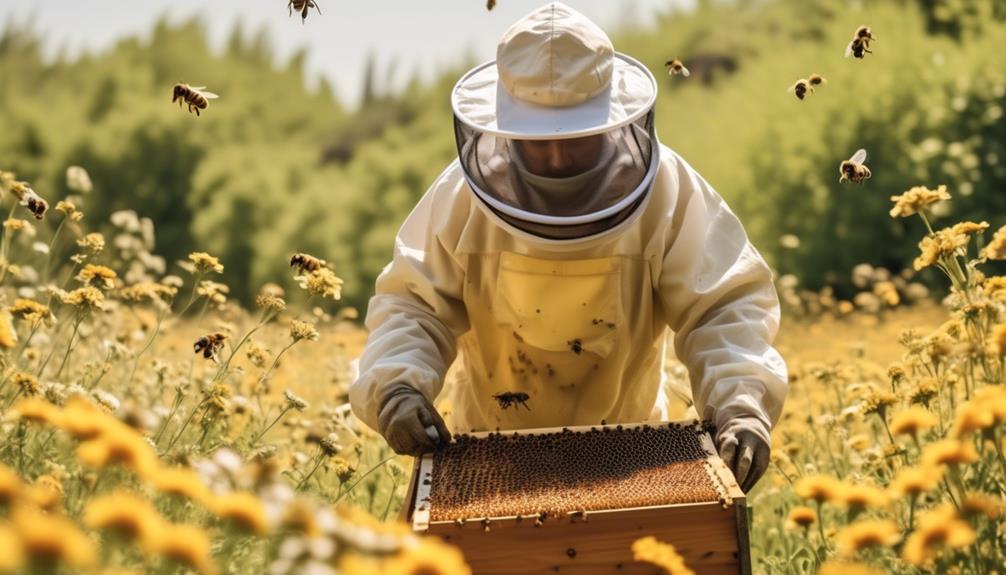
Diving into the honey production process, it's fascinating to see how these industrious little creatures transform simple nectar into the sweet, golden delight we know and love. You see, bees extract nectar from flowers using their specialized long tongues and store it in their honey stomachs. During this time, enzymes are introduced to the nectar, kickstarting the conversion process.
Once back at the hive, bees regurgitate the nectar for other 'house bees' to further process it by adding more enzymes, reducing the water content. This enzymatic process transforms the nectar into honey. The bees then deposit this syrupy substance into the honeycomb cells.
To fully mature the honey and prevent fermentation, bees fan their wings to evaporate any remaining water. Once the honey reaches its optimum moisture level, bees seal the honeycomb cell with a wax cap, preserving the honey for later consumption.
Contrary to popular belief, honey production doesn't harm bees. Instead, they produce much more honey than they need, allowing beekeepers to harvest the excess while leaving sufficient stores for the hive's needs. Therefore, sustainable honey production ensures the survival and prosperity of these essential pollinators.
Beekeeping Practices and Ethics
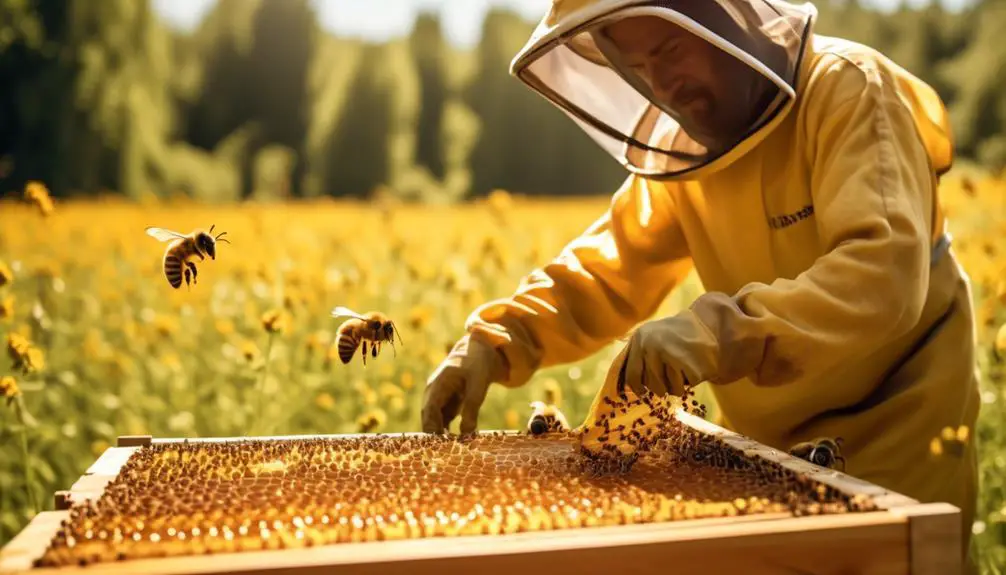
While sustainable honey production safeguards the bee population, it's crucial to understand that the ethics and practices of beekeeping play a significant role in this delicate balance. You must be aware that not all methods are created equal.
Ethical beekeeping involves ensuring that bees are kept in conditions that support their health and wellbeing. It's about providing ample space, proper nutrition, and minimal interference. You may be surprised to learn that some beekeepers harvest honey without considering the bees' need for it during winter. It's not just unfair, but it can lead to starvation and colony collapse.
When you're choosing honey, look for labels that indicate ethical practices. You can also support local beekeepers who are passionate about their craft and the welfare of their bees. They're likely to use sustainable methods, ensuring that their bees are healthy and their honey is of the highest quality.
Impact of Honey Production on Bees
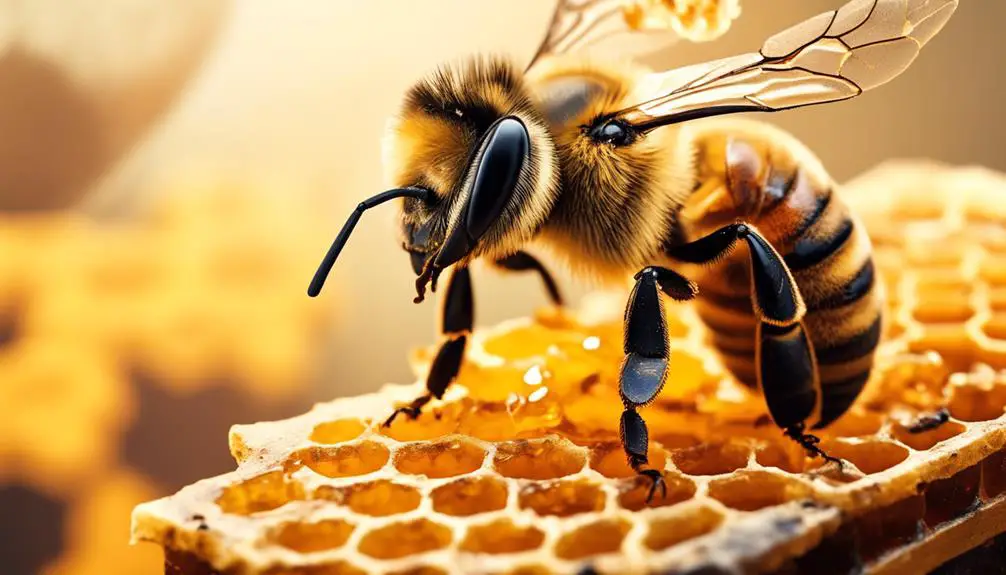
You mightn't realize it, but the process of honey production can have both positive and negative impacts on bee populations.
On the positive side, beekeeping promotes the growth of bee colonies. It encourages honey bees to produce more honey than they'd naturally need, ensuring the survival of the hive during winter months. Also, beekeepers protect the hives from predators, diseases, and harsh weather conditions.
However, it's not all rosy. The overproduction of honey can stress the bees, leading to colony collapse. Bees use honey as a food source during colder months when nectar is scarce. If too much honey is harvested, bees may starve or be forced to work harder to replenish their food stores, putting undue strain on the colony.
Furthermore, commercial beekeeping practices can introduce disease and parasites into hives, which can decimate populations. Pesticides used in agriculture can also harm bees, affecting their ability to navigate back to their hive.
Sustainable Alternatives to Traditional Honey
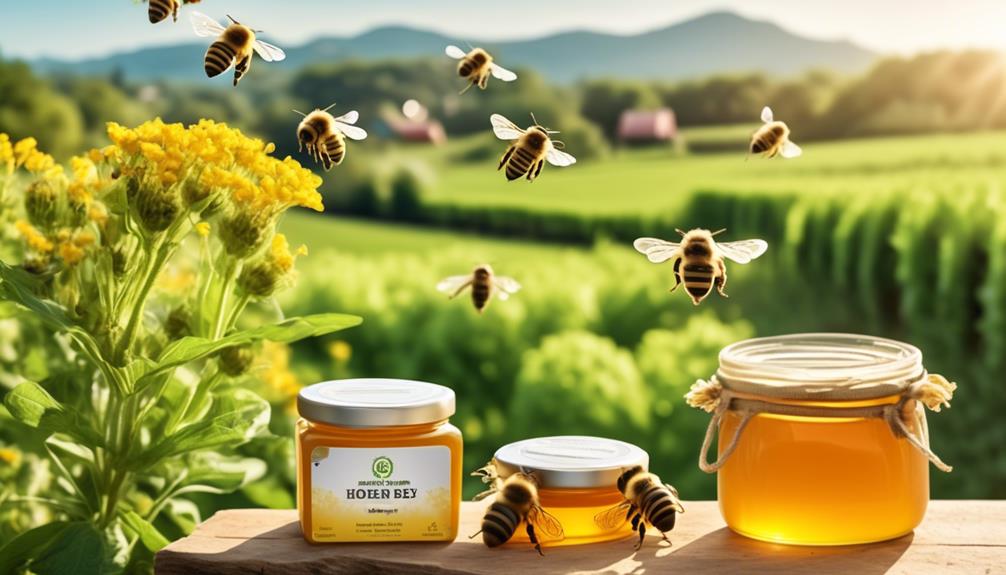
Exploring sustainable alternatives to traditional honey could be a game-changer, not just for your health, but for the survival and prosperity of bee colonies around the world. You might be wondering, 'What are these alternatives?' Well, it's high time we delve into them.
Firstly, consider agave nectar. It's a sweetener extracted from the core of the agave plant. It's got a low glycemic index and is sweeter than honey so you'll need less of it. You'll be cutting down on sugars and helping bees!
Secondly, there's maple syrup. It's a natural product made from the sap of sugar maple trees. It's not only a great honey substitute, but it's also rich in antioxidants and minerals.
Lastly, let's not forget about bee-free honeys, like those made from apples or dandelions. They're often locally sourced and have a unique taste of their own.
Conclusion
In conclusion, bees aren't purposely killed to make honey. However, poor beekeeping practices can harm or even kill bees.
It's crucial to support ethical, sustainable beekeeping that respects the bees' lifecycle and needs.
Remember, your choices matter. Opt for locally sourced, ethical honey or explore sustainable bee-friendly alternatives.
Let's all do our part to protect these vital pollinators and enjoy the sweet rewards responsibly.

